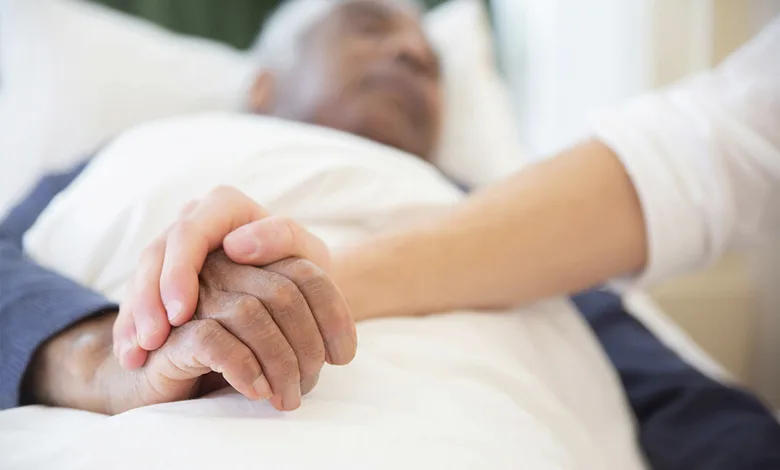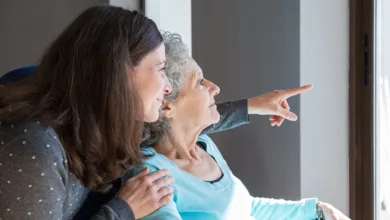Improving Post-Hospital Outcomes for Older Adults

The global population’s increasing longevity presents remarkable achievements and significant healthcare challenges.
Increasing global longevity represents both a remarkable achievement and a significant healthcare challenge.
According to the WHO, by 2030, one in six people worldwide will be aged 60 years or over. This will substantially increase from one billion in 2020 to an estimated 1.4 billion. The demographic shift will continue, with the number of individuals aged 60 and above projected to double by 2050, reaching 2.1 billion.
Even more striking is the anticipated tripling of the population aged 80 years or older between 2020 and 2050, culminating in 426 million individuals. As this demographic landscape evolves, ensuring positive health trajectories for older adults becomes paramount.
This article will discuss the multifaceted strategies and considerations necessary to improve the aging population’s post-hospital outcomes. We’ll aim to enhance their recovery, reduce readmissions, and promote sustained well-being beyond the acute care setting.
Understanding the Post-Hospitalization Challenge
Hospitalization poses a significant disruption for older adults, often triggering a vulnerable recovery period known as post-hospital syndrome. This condition is characterized by factors such as sleep deprivation, medication changes, deconditioning, and routine disruption. Each of these factors can compromise immune function and overall health.
According to Statista, nearly 14% of individuals aged 65–74 in the U.S. had at least one hospital stay in 2019, representing a slight decrease from the previous year. Despite this, the challenges of recovery remain complex and critical.
For many, returning home from the hospital marks a pivotal point. While some seniors regain their previous level of independence, others experience lasting declines in mobility, cognition, or emotional well-being.
A new Yale study reveals that older Americans face a higher risk of hospital readmission within 180 days after major surgery. This builds on prior research showing both the frequency of major surgeries among older adults and the increased mortality risk following such procedures.
The Importance of Adequate Post-Hospital Community Care
Research underscores that when post-hospital care fails to meet recommended standards, older patients are at greater risk. These standards include timely professional follow-ups, appropriate assistance levels, and individualized care plans tailored to each patient’s condition.
Moreover, according to the Wiley Online Library, nurse-coordinated interventions significantly reduce one-month readmission rates among frail older adults. A meta-analysis of 13 out of 16 trials involving 8,795 participants revealed a statistically significant reduction in readmissions at the one-month mark. This evidence highlights the crucial role of skilled nursing care in early recovery.
Advanced-practice nurses with an MSN-AGACNP (Master of Science in Nursing – Adult-Gerontology Acute Care Nurse Practitioner) degree are trained to lead this effort. Their specialized training allows them to manage complex conditions, develop comprehensive care plans, and intervene proactively.
Rockhurst University states dual-track programs like the MSN FNP-AGACNP empower nurses with versatile clinical expertise. This expanded skill set enhances their ability to support aging patients in both acute and community care settings.

The Use of Digital Tools for Better Outcomes
Technological innovations have created new opportunities to support older adults during the post-hospital period. Remote patient monitoring systems enable healthcare providers to track vital signs, symptoms, and medication adherence from a distance. This allows for early intervention before conditions deteriorate to require readmission.
Telehealth consultations have also proven particularly valuable for older adults with mobility limitations or those living in rural areas. Video visits can replace certain follow-up appointments, reducing the burden of transportation while still allowing clinicians to assess patients visually.
Electronic health records that include interoperability features enhance information sharing between hospital and community providers, effectively addressing a common point of failure during transitions. Mobile applications designed specifically for older adults offer medication reminders, symptom-tracking tools, and direct messaging capabilities with healthcare teams.
These predictive analytics tools assist healthcare systems in allocating limited resources to patients who are most likely to benefit from intensive post-discharge support.
Rebuilding health and routine after discharge
Recovery after hospitalization involves a holistic, patient-centered approach to restoring physical strength, rebuilding daily habits, and nurturing emotional health. Older adults, in particular, benefit from a structured recovery plan that prioritizes good nutrition, restorative sleep, and a gentle reintroduction to physical activity.
These elements are essential for preventing deconditioning and promoting immune resilience. During this period, caregivers and healthcare providers must remain vigilant, as older patients are particularly susceptible to complications or relapses that may go unnoticed.
A smooth transition home or another care setting depends significantly on how well-informed the patient and their family are during discharge.
According to Johns Hopkins Medicine, your healthcare team should provide clear and comprehensive instructions that include:
- Your medical condition at the time of discharge
- Required follow-up care (e.g., physical therapy)
- Prescribed medications, their purpose, dosage, and side effects
- Proper disposal of discontinued medications
- Information about medical equipment and how to obtain it
- When and how you’ll receive test results
- Instructions on food, drink, exercise, and activity restrictions
- Expectations if transferring to another facility
- Phone numbers to call with questions or concerns
- Guidance on when to seek medical help
- Dates or how to schedule follow-up appointments
Incorporating this information into daily routines and combining it with social support increases the likelihood that older adults will experience better long-term outcomes.

FAQs on post-hospital outcomes
What are the most common reasons that lead to older adults being readmitted to hospitals after discharge?
The most common reasons for hospital readmission among older adults include medication errors or adverse drug events, inadequate follow-up care, and premature discharge. Additionally, insufficient patient and caregiver education, as well as complications from the original condition, often contribute to unplanned returns to the hospital. Social factors, such as lack of transportation to follow-up appointments and inadequate home support, also significantly contribute to readmissions.
How long should post-hospital support programs last to achieve optimal outcomes for older adults?
The optimal duration of post-hospital support varies based on individual patient needs, the complexity of medical conditions, and the availability of social support. Research suggests that intensive support during the first 30 days post-discharge is critical, as this period sees the highest rates of adverse events. However, many successful programs extend support for 60 to 90 days, gradually decreasing intensity as patients stabilize.
What role do family caregivers play in improving post-hospital outcomes for older adults?
Family caregivers are integral to successful post-hospital transitions. Research shows that caregivers who receive adequate training, resources, and support significantly reduce readmissions and improve patient quality of life. Effective caregiver involvement includes assistance with medication management, recognizing warning signs that require medical attention, and helping with activities of daily living.
Improving post-hospital outcomes for the aging population is a complex yet critical endeavor. It requires coordinated efforts to deliver adequate community care, rebuild health and routines, and provide clear communication and emotional support. By embracing holistic, patient-centered strategies, healthcare systems can help seniors thrive after hospitalization.





